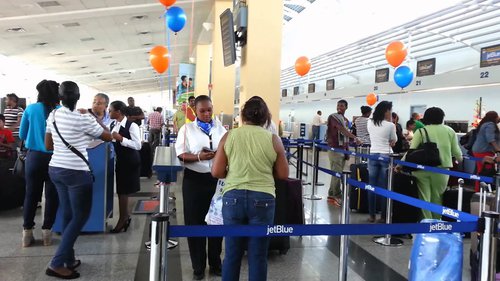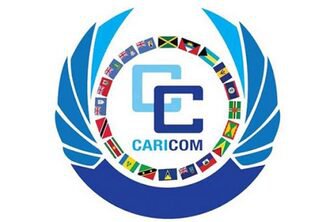NOTICE
Discontinuation of Passport Renewal Service for Replacement CSME Certificates.
Please be advised that from 6th August, 2025 CSME Skills Certificates holders are no longer required to apply for a Replacement Skills Certificate on the expiration of their passports.
Interested persons are advised to schedule an appointment for a Telephone Consultation via this link -> https://appointments.gov.tt/ prior to submitting an application to the Ministry of Foreign and CARICOM Affairs.
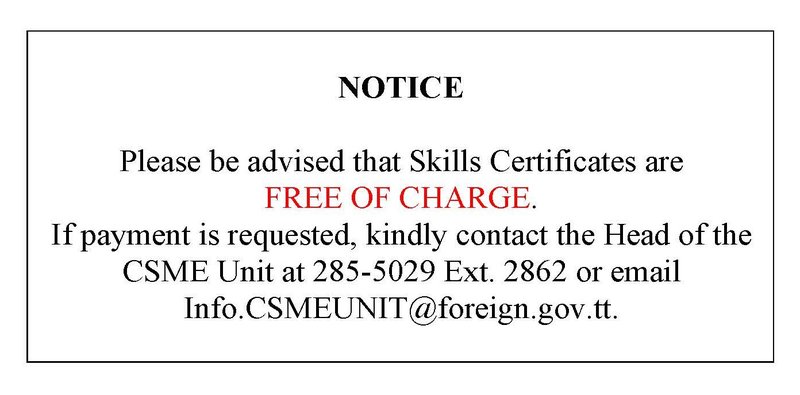
Please see CSME eApplication Link - https://csme.foreign.gov.tt/ OR Scan QR Code below
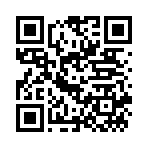

Download guidelines below:
CSME Skills Certificate Requirements
IMPORTANT: Please note that the Ministry of National Security, Immigration Division has advised that a Police Certificate of Character is required from the home country of a CARICOM national prior to being granted residency, citizenship and indefinite stamps for a CSME Skills Certificate.
Welcome to the CARICOM Single Market and Economy (CSME)
"The CSME is therefore intended to better position Member States to grow by having access to and using the resources of the region as a whole rather than relying only on the resources of the resources of the particular Member state."
Dr. Keith Rowley
Former Prime Minister of Trinidad and Tobago
All you need to know about the CSME
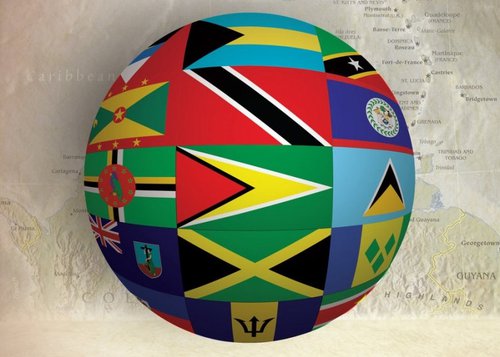
What is the CARICOM Single Market and Economy (CSME)?
The CARICOM Single Market and Economy (CSME) is an arrangement among the fourteen (14) CARICOM Member States for the creation of a single enlarged economic space through the removal of restrictions resulting in the free movement of goods, services, persons, capital and the Right of Establishment.
HOW DO CARICOM NATIONALS IN THE APPROVED CATEGORIES MOVE TO WORK IN ANOTHER MEMBER STATE?
CARICOM nationals who fall into any of the approved categories and wish to work in another participating CSME Member State must apply for and be granted a Certificate of Recognition of Caribbean Community Skills Qualification (Skills Certificate). A CARICOM national who has been issued with a Skills Certificate would be allowed an indefinite stay subject to all immigration requirements. A Trinidad and Tobago national who has been issued with a Skill Certificate from Trinidad and Tobago would be required to verify his/her qualifications with the respective Competent Authority in the Member State in which he/she wishes to work.
It is advisable that sufficient research is conducted prior to leaving one’s home country. Such research would include, but is not limited to, immigration requirements, documents necessary for the Skills Certificate, which institutions function as the Competent Authority and the national laws that must be upheld.
Please click here for List of Competent Authorities.
FREE MOVEMENT OF SKILLS/LABOUR
The free movement of skills/labour includes the right of a CARICOM national under Article 46 of the Revised Treaty of Chaguaramas to seek work and/or engage in gainful employment in any of the participating CSME Member States, without the need to obtain a work permit in the Member State in which he/she wishes to work.
Free Movement of Skills is NOT a Right to Permanent Residency or Citizenship.
There are currently no rights regarding free movement solely for the purposes of residency or permanent naturalization or citizenship. If a person wishes to migrate from one CARICOM Member State to live in another he/she must apply for residency or citizenship in accordance with the laws of the host country.
Persons who are eligible for free movement of skills/labour must be engaged in some kind of legitimate economic activity. They must also fall within one of the categories that have been approved for free movement.
WHICH ARE THE PARTICIPATING CSME MEMBER STATES FOR THE PURPOSE OF FREE MOVEMENT?
A participating CSME Member State refers to any CARICOM country that has signed on to the CSME arrangements and ratified the Revised Treaty of Chaguaramas. For the purpose of Free Movement, these include:
Antigua and Barbuda
Barbados
Belize
Dominica
Grenada
Guyana
Jamaica
St. Kitts and Nevis
Saint Lucia
St. Vincent and the Grenadines
Suriname
Trinidad and Tobago.
WHAT ARE THE CATEGORIES THAT HAVE BEEN APPROVED BY TRINIDAD AND TOBAGO FOR FREE MOVEMENT?
According to Article 46 of the Revised Treaty of Chaguaramas the following categories of CARICOM nationals have the right to seek employment in any of the participating CSME Member States:
1. University Graduates
2. Artistes
3. Musicians
4. Media Workers
5. Sportspersons
6. Nurses
7. Teachers
8. Artisans
9. Holders of Associate Degrees
10. Domestic Workers
11. Agricultural Workers
12. Private Security Officers
DEFINITIONS
University Graduates - University Graduates, for the purpose of free movement of skills, are persons who have obtained at least a Bachelor’s degree from a recognized University.
The Accreditation Council of Trinidad and Tobago provides recognition status of tertiary level institutions and programmes operating locally and internationally. Please visit their website for more information on recognition and accreditation – http://www.actt.org.tt
Artistes - Artistes, for the purpose of free movement of skills are persons who are active in or qualified to enter a particular field of art with the specific purpose to earn a living.
Media Workers - Media Workers are persons whose sole source of income is derived from media and media-related work and are qualified to enter this field.
Sportspersons - Sportspersons, for the purpose of free movement of skills, are persons who are active in or qualified to enter a particular field of sports with the specific purpose of earning a living as a professional or semi-professional.
Nurses - These are persons who have successfully completed basic or higher level training for nurses; who are registered with the General Nursing Council of a CARICOM Member State and are designated Registered Nurses
Teachers - Teachers are persons who have successfully completed an approved pre-service or in-service teacher preparation programme from an accredited/ recognized institution offering teacher education.
Artisans - An artisan is a skilled workman or craftsman.
Holders of an Associate’s Degree - CARICOM nationals who are eligible must be holders of an Associate Degree who have obtained an Associate Degree from an accredited/recognized university or college. Comparable Qualifications include:
• 2 CAPE/ 2 ‘A’ Levels;
• Certified Accounting Technician Qualification;
• National Technician Certificates requiring two years of study at the post-secondary level;
• Other comparable qualifications to be identified and compiled in a comprehensive list for the guidance of the Competent Authority in Member States.
Domestic Worker - A domestic worker is any person engaged in domestic work within an employment relationship and includes a person who –
• conducts functions such as sweeping vacuuming, cleaning, washing and polishing, taking care of household linen, purchasing supplies, preparing food, serving meals and various other domestic duties for the household within private residential homes; or
• provides routine personal care and assistance with activities of daily living to persons who are in need of such care due to effects of ageing, illness, injury or other physical conditions, in private residential homes; or
• provides routine care and supervision for children in private residential homes
Agricultural Worker - Agricultural workers are persons engaged in agricultural work in one or more of the following areas:
• Crop farm production including growing/harvesting field or tree and gathering fruits and plants;
• Livestock farm production including breeding and tending of animals (including aquaculture)
Private Security Officer - A private security officer provides services for the protection of persons or property or to prevent the theft and/or destruction or the unlawful taking of property.
All relevant requirements\application forms can be found below:
- CSME Skills Certificate New Application Requirements
- CSME Skills Certificate Replacement Application Requirements
- Right of Establishment New Application Requirements
- Right of Establishment Extension Requirements
- Right of Establishment Requirements for Managerial and Supervisory Staff
- Right of Establishment Requirements for Service Provider
- Verification Application Form
- Letter to Third Party Applications AND Third Party Declaration Form
- CARICOM Complaints Form
- Medical Forms 40 and 40a (Immigration Regulations 1974)
- CSME- Free Movement Travel and Work book
Processing Timeline
The minimum timeline for the processing of applications for the Certificate of Recognition of Caribbean Community Skills Qualification (Skills Certificate) is five (5) to six (6) weeks. Applicants will be notified via email accordingly.
Status letters can be requested via email to info.csmeunit@foreign.gov.tt and can take approximately two (2) to three (3) business days.
• Please read and follow the guidelines carefully.
• Scan all relevant supporting documents in PDF format.
Download guidelines below:
CSME Skills Certificate Requirements
THE STAGES FOR CSME SKILLS CERTIFICATE APPROVAL ARE AS FOLLOWS:
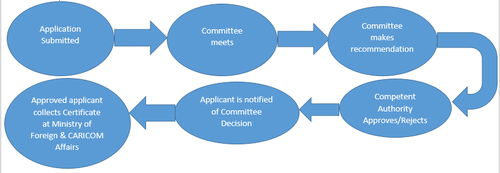
RIGHT OF ESTABLISHMENT
THIRD PARTY BUSINESSES APPLYING UNDER THE RIGHT OF ESTABLISHMENT AND THE RIGHT TO PROVIDE A SERVICE
This Policy is intended to inform Third Party Businesses that apply on behalf of CARICOM nationals; the requirements to fulfil during the application process.
Third Party Businesses Applying Under the Right of Establishment and the Right to Provide a Service
Businesses or Individuals interested in applying for a Work Permit Exemption under the Right of Establishment should review the list of required documents.
Applicants are no longer required to submit twelve (12) copies of the required supporting documents and should instead submit PDF soft copies of the required documents to the CSME eApplication platform.
BENEFITS FOR HOLDER OF THE SKILLS CERTIFICATE
The benefits of being issued with a Skills Certificate from the host country include but are not limited to the following:
1. There is no restriction on freedom of movement, including the freedom to leave and re-enter his or her host country
2. There is a wider pool of opportunities available for employment
3. There is freedom to buy or rent property for residential or commercial use (this may not apply to all Member States since some Member States would require a special license/permit)
4. Spouses and immediate dependent family members are allowed to move with the holder of the Skills Certificate
5. There is no need to obtain a Work Permit
PROCEDURE AFTER RECEIVING A SKILLS CERTIFICATE
- On entry into a CSME participating country, CSME nationals receive an automatic 6 months;
- Within this 6 month period, all holders of CSME Skills Certificates must have their Certificate verified by the competent authority of that country. This is usually requested by the employer or by the Immigration Division. A list of the competent authorities can be found in the CSME – Free Movement Travel and Work booklet below;
- Once the Skills Certificate is verified as authentic and notification of such has been received from the Ministry of Foreign and CARICOM Affairs or by the Immigration Division, the holder, his/her spouse, and dependents should visit the Immigration authorities in order to receive the appropriate stamp to reside in the Member State.
REPLACEMENT OF CSME SKILLS CERTIFICATE
The holder of a Skills Certificate issued by the competent Authority in Trinidad and Tobago (Ministry of Foreign and CARICOM Affairs, CSME Unit) who wishes to apply for a replacement certificate because there has been lost, stolen or mutilated, or there has been a change in his/her name, marital status or upgraded skills/new profession should submit the following documents:
- Upload a copy of your valid passport
- Upload a Scanned copy of your old Skills Certificate issued by Trinidad and Tobago
- Upload a scanned document which identifies the change(s) for example: marriage certificate, deed poll, qualification
- Upload One (1) identical passport size photo on a white background
A CARICOM national (including nationals of Trinidad and Tobago) whose Skills Certificate was lost or stolen must report the lost/stolen Skills Certificate to the Police in the country where the certificate was lost or stolen.
He/she must submit the following documents to the Ministry of Foreign and CARICOM Affairs to apply for a replacement Certificate:
- A scan of the Police Report stating that the Skills Certificate was lost or stolen (the original will be returned to the applicant)
- An affidavit swearing that the Skills Certificate was lost or stolen, approximately where and when it was lost or stolen and that it was not sold or transferred to anyone
- Passport (scan)
- One (1) passport sized photo
- Completed application form
- Scan of previously issued Skills Certificate
ENTRY OF CARICOM NATIONALS INTO TRINIDAD AND TOBAGO
A CARICOM national who is seeking to enter Trinidad and Tobago would be granted a definite entry of six (6) months, subject to the satisfaction of all immigration requirements.
In the event that the CARICOM national is already in possession of a Skills Certificate issued by another participating Member State, the holder of the Skills Certificate is required to visit the Ministry of Foreign and CARICOM Affairs in order to complete the verification process.
- Holders of a CSME Skills Certificate NOT issued by Trinidad and Tobago, must complete the verification process within six (6) months of entry into Trinidad and Tobago. There is no cost attached to the verification process.
- The verification process entails the submission of the following documents:
o A completed verification application form (available here)
o The presentation of the applicant’s passport
o The presentation of the applicant’s original Skills Certificate.
Please note that The Ministry of Foreign and CARICOM Affairs will not retain the passport and original skills certificate.
- The Holder of the Skills Certificate process will be notified by the Ministry of Foreign and CARICOM Affairs following the outcome of their verification application.
- Upon notification by the CSME and Diaspora Affairs unit, the holder of the skills certificate must contact the Immigration Division in order to make an appointment to receive the appropriate stamp.
PROSPECTIVE APPLICANTS FOR A SKILLS CERTIFICATE
If a CARICOM national does not already possess a Skills Certificate and is desirous of obtaining a Skills Certificate issued by Trinidad and Tobago, a telephone consultation should be scheduled at the national’s earliest opportunity. It is advised that persons apply at least three (3) months in advance of the expiration of the immigration stamp and Police Certificates of Character.
When the Certificate has been issued, the CARICOM national is obligated to visit the Immigration Division in order to be granted with the appropriate stamp.
While skilled CARICOM nationals are afforded several rights under the CSME regime, recipients must be mindful of their obligations when exercising the right to free movement. In this regard, their obligations include but are not limited to:
- A valid Skills Certificate issued by a Member State in order to work
- A valid passport from a CARICOM Member State
- Be truthful at all times to the relevant authorities of the Member State
- Obey the laws of the Member State
- Make taxation and national insurance payments in accordance with local laws in the same way as nationals of the Member State
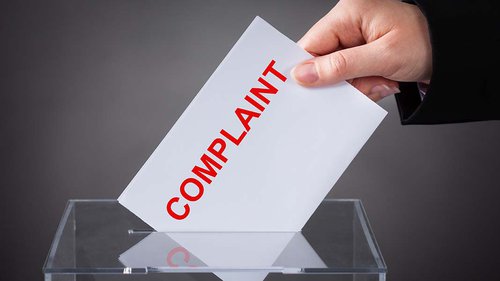
CARICOM COMPLAINTS PROCEDURE
A CARICOM national arriving in, transiting or departing a Caribbean Community Member State, and or seeking to exercise a right under the CSME, may have had certain experiences about which he / she wishes to file a complaint with the relevant authorities. The experience(s) may have been at a port of entry, after entry into a Member State, or both.
The complaints procedure is proposed to assist CARICOM nationals in the exercising of their rights under the Treaty.
- A CARICOM national wishing to make a complaint shall fill out the complaints form at this link or use the fillable form option here.
- The completed form shall be returned (in person / by mail / electronically) to the CSME Focal Point of the receiving country or the home country of the CARICOM national within five (5) working days of the date of the incident.
- The CARICOM national may be contacted in the event that additional information is needed to commence the investigation or during the investigation.
- The CSME Focal Point for Trinidad and Tobago can be contacted at the Ministry of Foreign and CARICOM Affairs.
Where do I get more information?
For more information or assistance, please
contact:
Ministry of Foreign and CARICOM Affairs
St. Clair Circle
St. Clair
Port of Spain
Tel: (868) 623-6894 or (868) 285-5029
Right of Establishment and General Information on CSME Desk:
(868) 285-5029 Ext. 2074
Skills Certificate Verifications Desk:
Tel: (868) 285-5029 Ext. 2074
Replacement Skills Certificates Desk:
Tel: (868) 285-5029 Ext. 2128
Skills Certificate queries and New Applications:
Tel: (868) 285-5029 Ext. 2128 or 2102
E-mail contact for the CSME Unit for further queries – info.csmeunit@foreign.gov.tt
Note: Please make use of our frequently asked questions (FAQs)
/services/csme/faq-csme/
before directing any further inquires to staff.Useful Links:
The Revised Treaty of Chaguaramas
Are you a Trinidad and Tobago Artist wishing to work in a CARICOM Member State under the CSME? To register on the Artist Registry of Trinidad and Tobago (ARTT), Ministry of Tourism, Culture and the Arts, please click on the following link:
http://www.culture.gov.tt/culture-division/professional-arts/artist-registry-2/
Link to TTPS website – New guidelines to applicants for a Certificate of Character.
Ministry of National Security - Immigration Division
The Accreditation Council of Trinidad and Tobago
The Accreditation Council of Trinidad and Tobago - Statement on Recognition
The Accreditation Council of Trinidad and Tobago - Equivalence Assessment
Ministry of Trade and Industry
Ministry of Works and Transport
DISCLAIMER: THE INFORMATION ON THIS PAGE IS NOT USED AS A REPLACEMENT FOR THE REVISED TREATY OF CHAGUARAMAS OR THE LAWS OF TRINIDAD AND TOBAGO

